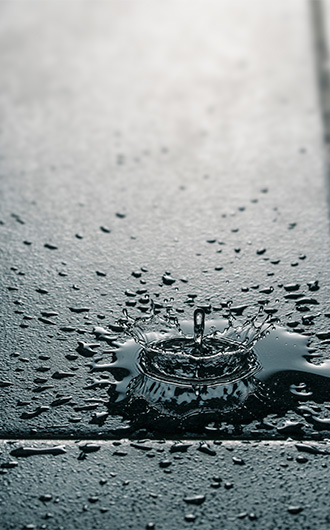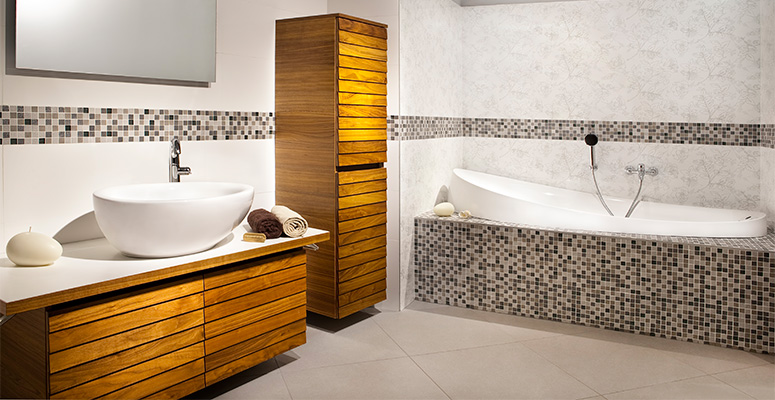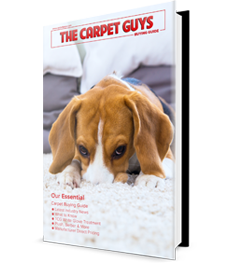
Choosing what type of flooring to install in wet areas of your home is a major decision since it needs to suit the requirements of the room.
It wouldn’t make sense to put carpet in an area that gets wet or accumulates dirt quickly, which is why you need to research your options and choose the best fit.
This is especially true in areas that get wet like your basement, bathroom, kitchen, or laundry room.
What Flooring is Best for Wet Rooms?
 There are typically four flooring types used for wetter areas:
There are typically four flooring types used for wetter areas:
- Concrete
- Tile
- Laminate
- Vinyl (LVT and LVP)
The most basic option is to use concrete. This is common for basement flooring or outdoor areas, but lacks in aesthetic appeal and tends to get really cold in the winter. It is less than ideal for indoor areas with a lot of foot traffic and cannot be customized like other flooring types.
Concrete is also porous, which contributes to easy access for moisture and other water related issues. You want floors that can get wet and last, not one that encourages water in.
Tile flooring is a common option for bathroom flooring because it is versatile and comes in many different patterns and designs. A drawback is that tile is incredibly slippery when wet, which poses a fall hazard, especially for young children or elderly individuals who might not be able to balance themselves as well. They also need to be settled when laying the floor.
It’s essential to know the porosity of the tile to indicate how resistant it will be to water, and installation can be pricey.
A solid laminate floor promises to be an affordable option but is not an ideal choice for basements or bathrooms. The low price might seem appealing on the surface, but water can cause it to swell and require replacement, ultimately costing you more money in the long run.
Vinyl Flooring Saves the Day!
Vinyl flooring is an excellent option if you need something in an area with frequent moisture, especially in your bathroom and kitchen. It is affordable and the seams allow moisture to penetrate.
It is a very affordable and versatile alternative to pricier choices such as hardwood or stone, which might not hold up as well in wet conditions. Vinyl can also be ordered in a multitude of patterns that replicate pricier options such as wood or stone.

Higher quality brands also offer waterproof guarantees as opposed to being only water resistant. Vinyl can also be constructed to reduce the chances of mildew or mold forming.
Select the flooring option that suits the need of the room. A room that has frequent exposure to moisture needs to have adequate flooring to prevent damage.
If you’d like to explore your options of vinyl flooring, give us a call to schedule a free vinyl flooring estimate today. We guarantee we’ll find you a vinyl floor that looks good and lasts long for years to come.



